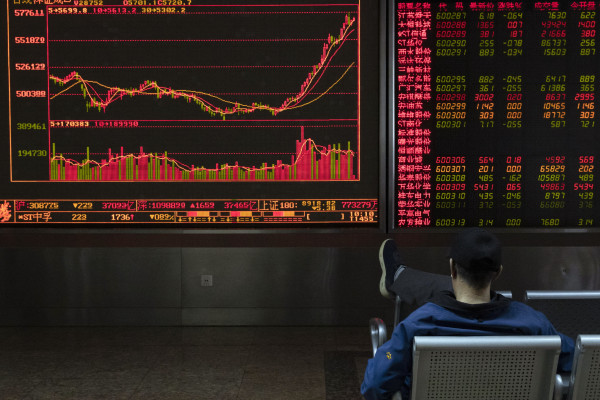

The number of underachieving funds has jumped by a third, with Invesco retaining the top spot in Bestinvest's hall of shame for the sixth time.
Spot the Dog - a six-monthly study which names and shames the worst performing equity funds - identified 119 funds that have underperformed the market by over 5 per cent across three years.
Invesco topped the list with £9.2bn spread across 11 funds, although this was an improvement on last year’s 13 funds with a combined ‘dog’ value of £11.4bn
However, Invesco refuted the report, claiming it was a "snapshot covering a specific time period and methodology" and that the global business had seen strong growth over the last 12 months.
It stated: "Our UK business has undergone significant and positive change across our product range over the past year to better align to client needs, whilst remaining true to our high conviction, engaged and disciplined approach to investing."
This followed the appointment of new chief investment officer Stephanie Butcher in October 2019.
The £3.2bn Invesco UK Equity High Income fund was the largest Great Dane - funds with more than £1bn assets - in Bestinvest’s list, losing 21 per cent of value over the period. The fund is joined in the top 10 by another of Mark Barnett’s former funds – the £1.5bn Invesco Income fund.
Both funds have been undergoing a revamp since the departure of Barnett.
Bestinvest said Invesco’s developments were ‘clearly a work in progress’.
Jupiter too has performed poorly, according to the report, leaping up to second place from ninth.
This was in part accountable to its acquisition of Merian Global Investors, resulting in an 8 dog-strong pack of funds worth £4.1bn.
Of these, the worst performer was the ‘American pitbull sized’ North American Equity fund, having delivered a negative 14 per cent relative three-year return.
St. James's Place, a regular feature among the top spots, took the third place, with the report identifying four underperforming funds worth £4bn.
But the firm has criticised the report for not making ‘accurate’ like-for-like comparisons.
“Over the past 10 years, we have grown clients’ wealth by 80 per cent after all charges on average, and by as much as double in our most popular portfolio,” a spokesperson for the company said.
Whereas SJP had a small number of large funds underperforming, Schroders, in fourth place, had a total of 11 individual funds in the doghouse, worth £3.9bn.
The report cited this underperformance to the prevalence of ‘recovery’ funds within Schroders' portfolio, saying that funds which target undervalued companies have been lagging far behind the strong performance of ‘growth stocks’, primarily in technology and communication sectors.
A Schroders spokesperson said: “We regularly review our funds to ensure we understand the reasons for underperformance and whether any action is required to improve outcomes for our investors. We remain confident that our strategies can outperform over the long term.”
Rounding out the top five was JP Morgan, up from 45th place, and the consequence of a single fund.
JP Morgan’s US Equity Income fund, worth £3.2bn, attempts to find dividend-generating US companies, but has been underweight in technology stocks, many of which do not pay dividends.
The fund fell 27 per cent below the benchmark.
The report acknowledged the anomalous result, saying it was ‘understandable’ why the fund had met the criteria for inclusion.
Both Schroders and JP Morgan could see significant improvement once the economic recovery allows for large dividend payers, such as energy and banking, to reinstate strong payments, it said.
Meanwhile, funds that specifically invest in smaller companies do not make an appearance in the kennel, and ‘appear to be an extinct breed’, according to Bestinvest.
The highest proportion of ‘dogs’ was in North American funds, with 26 per cent of products qualifying for entry to the kennel.
However, the report acknowledged the anomalous performance of funds which target dividend generating companies, on the back of “a market led by low or non-dividend ‘growth' stocks trading on premium valuations.”
The report also acknowledged the strong performance of both Morgan Stanley US Advantage and Brown Advisory US Sustainable Growth funds, which have both beaten the S&P 500 over three years by 70 per cent and 60 per cent respectively.
Jason Hollands, managing director at Bestinvest, said: “Recognising that you might have your money invested in a dog-fund is not as straight-forward as you might think. While 32 of the funds in the report actually lost investors’ money over the last three-years – the worst by -41 per cent- most of them didn’t.
“That’s because stock-markets in general have delivered very strong returns over the last decade and so nearly all ships have been lifted by the rising tide, even those with leaks in their hulls. If the value of your investments have gone up over the years, it is easy to assume that the fund manager has done an OK job.
“In reality, their decisions may not be adding any value whatsoever, though you’ll be paying them fees nevertheless.”
JP Morgan was approached for comment.
Tom Higgins is a freelance writer for FTAdviser



